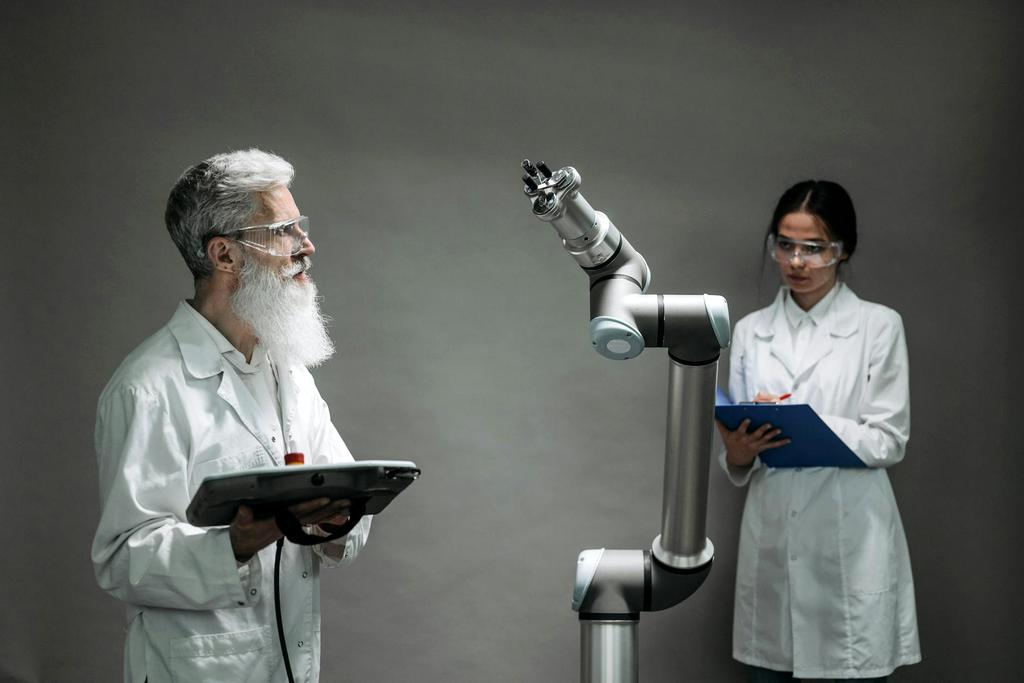
High-Performance Computing Explained
Unleash unprecedented computational power to solve the world's most complex problems. Discover how HPC is transforming industries and driving innovation.

Unleash unprecedented computational power to solve the world's most complex problems. Discover how HPC is transforming industries and driving innovation.

High-Performance Computing (HPC) refers to the practice of aggregating computing power to deliver much higher performance than typical desktop computers or workstations to solve large problems in science, engineering, or business.
Distributing work across thousands of compute nodes
Utilizing GPUs and specialized hardware
Low-latency interconnects for data transfer
High-throughput parallel file systems
CPU Cores
Peak Performance
Industries Transformed
Countries Using HPC
Explore the cutting-edge technologies that power today's high-performance computing infrastructure

Breaking down complex problems into smaller tasks that can be processed simultaneously, dramatically reducing computation time.

Using graphics processing units to accelerate deep learning, scientific simulations, and data analytics workloads.

Emerging hybrid systems that combine classical HPC with quantum computing capabilities for specific problems.

Innovative liquid and immersion cooling systems that maintain optimal operating temperatures while reducing energy consumption.

Intelligent workload scheduling and resource allocation powered by machine learning algorithms.

Distributed file systems capable of processing quintillions of bytes at unprecedented speeds.
High-Performance Computing is transforming how we approach complex challenges across multiple disciplines
Accelerating DNA sequencing and personalized medicine through massive parallel processing of genetic data.
Creating high-resolution simulations of global climate patterns to predict changes and inform policy decisions.
Risk analysis, fraud detection, and high-frequency trading systems powered by real-time HPC capabilities.
Virtual crash testing, aerodynamic simulations, and autonomous driving systems development.
Training complex neural networks and machine learning models at unprecedented scale and speed.
Simulating molecular interactions to accelerate pharmaceutical research and vaccine development.
Designing next-generation aircraft, spacecraft, and propulsion systems through complex simulations.
Rendering complex visual effects and animations for films, games, and virtual reality experiences.
Explore how organizations have leveraged High-Performance Computing to overcome challenges

Improved hurricane prediction accuracy by 35% through implementation of exascale computing resources for atmospheric modeling.

Reduced cancer genome sequencing time from weeks to hours, enabling real-time clinical decisions for personalized treatment.

Cut vehicle design cycle time by 60% while improving safety ratings through advanced crash simulation and aerodynamic modeling.

Implemented real-time risk analysis platform processing over 10 billion daily transactions, reducing fraud by 42%.
Insights from industry leaders and researchers using HPC

Quantum Computing Researcher
"High-performance computing has revolutionized how we approach quantum simulations. Problems that would take centuries on classical systems can now be solved in days."

Climate Research Director
"Our climate models now operate at resolutions previously unimaginable. We can track atmospheric patterns down to 1km grids, providing unprecedented accuracy in forecasting."

CTO, NeuraTech AI
"The integration of HPC with our machine learning pipeline has reduced model training time from weeks to hours, allowing us to iterate faster and stay ahead of competition."
Explore the latest innovations powering next-generation computing

Systems capable of performing more than one quintillion calculations per second, revolutionizing scientific discovery.

Hybrid systems integrating quantum processing units with traditional supercomputers for specific workloads.

Brain-inspired computing architectures that mimic neural structures for ultra-efficient AI applications.

Using light instead of electricity to process information, enabling faster data transmission with lower energy consumption.

Sustainable computing infrastructure designed to maximize performance while minimizing environmental impact.

Bringing high-performance computing capabilities closer to data sources for real-time processing and reduced latency.
Answers to common questions about High-Performance Computing
High-Performance Computing (HPC) involves aggregating computing power to achieve performance levels far beyond typical desktop systems. While regular computers might have 4-16 processor cores, HPC systems can have thousands or millions of cores working in parallel, with specialized interconnects, accelerators like GPUs, and optimized storage systems. HPC typically tackles problems too large or complex for standard computers, such as climate modeling, genomic analysis, or complex simulations.
Small businesses can access HPC resources through cloud services without the capital expense of building their own infrastructure. This "HPC-as-a-Service" model allows for cost-effective access to powerful computing resources for specific projects or workloads. Small businesses can leverage HPC for product design optimization, market simulations, AI-driven analytics, and more, enabling them to compete with larger organizations on a more level playing field.
Working with HPC systems typically requires knowledge of parallel programming models (MPI, OpenMP), strong software development skills, understanding of computational algorithms, and familiarity with Linux environments. Domain expertise in the relevant field (physics, bioinformatics, etc.) is also valuable. Additional skills include experience with job schedulers, performance optimization, and potentially GPU programming with models like CUDA or OpenCL.
HPC and AI have a symbiotic relationship. Training complex AI models, particularly deep learning networks, requires massive computational resources that HPC systems provide. Conversely, AI techniques are increasingly used to optimize HPC workloads, improve resource allocation, and predict system failures. Many modern HPC systems now incorporate specialized AI accelerators alongside